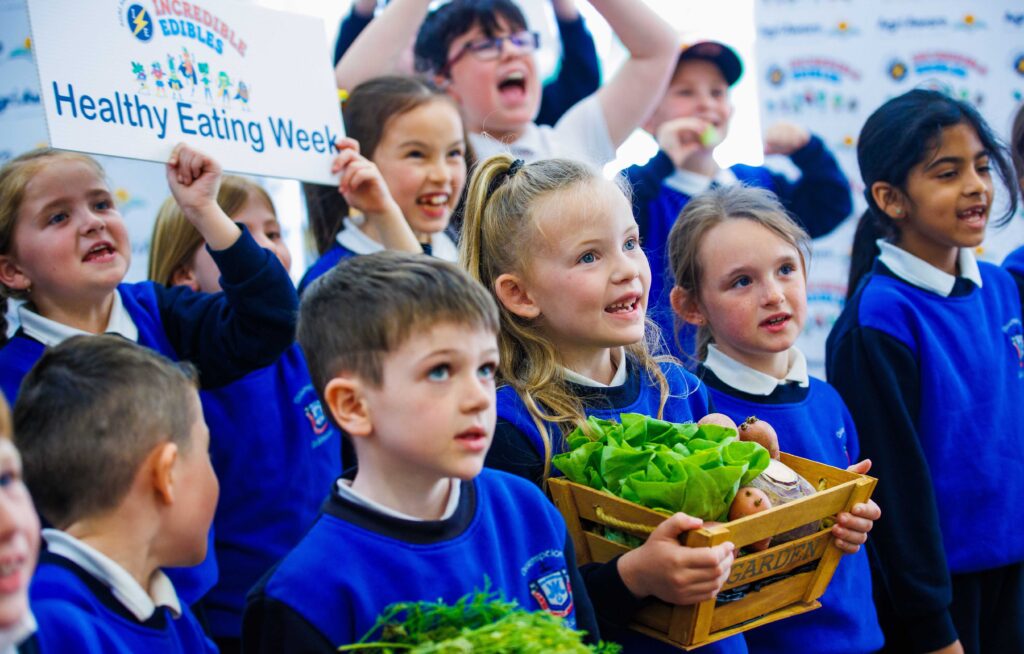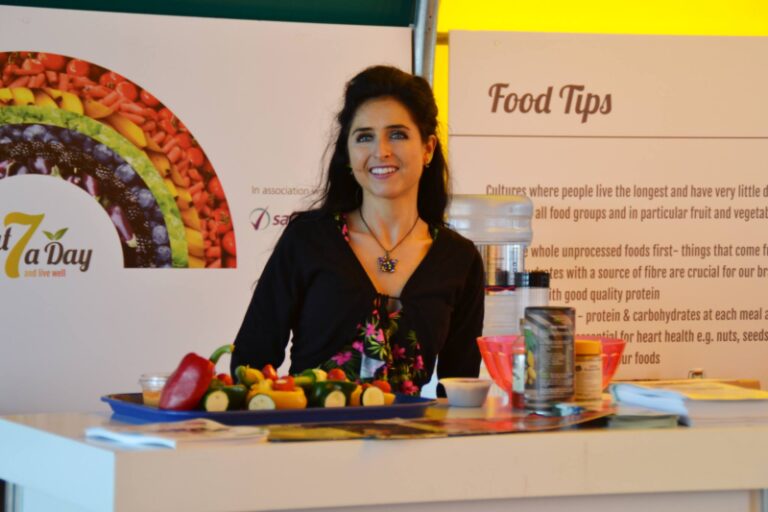According to The National Children’s Food Survey the majority of primary school aged children in Ireland (5-12 years) are only consuming three portions of fruit and vegetables per day which is far from the recommended ‘7 a day’.
Speaking about this concern was Registered Dietician and Researcher Niamh Arthurs ahead of the Incredible Edibles Healthy Eating Week.
Incredible Edibles is a healthy eating and growing project that gives primary schools a free grow box full of Irish fruit and vegetables and engages them in five aspects of food production and consumption. These five aspects include food origin, identifying Irish produce, growing, cooking and eating their own healthy foods.
The challenge for Healthy Eating Week is to eat seven a day for seven days – which is the recommended amount for those aged five and over from The Department of Health and the HSE. Schools will also fill out a food diary available on the Incredible Edibles website.
Speaking about the Incredible Edibles programme and what she feels Healthy Eating Week has to offer, Ms. Arthurs stated: “The Incredible Edibles Programme is a fantastic opportunity for children of all different backgrounds who may or may not have a lot of green space where they live to grow their own food and learn about where some of our food, particularly food that are ‘veggie veggie’ good for us comes from. Literally from farm to fork.
“It helps to really get children excited about growing fruit and vegetables and helps to increase their familiarity with various types of fruit and vegetables.
This is especially the case for ones we can grow in season here in Ireland. These are really important not just for the nutritional value and flavour of the food but also for the environment and arguably for the economy and producers in Ireland. There are multiple benefits of eating foods that we can grow locally in Ireland.
“Empowering families with knowledge and supports and actively encouraging their involvement in school nutrition programmes can stimulate their interest and appetite for making healthier food choices.
“In essence, it’s about creating those conversations to pass down information from generation to generation. For some families, the Incredible Edibles programme can see children bringing home the knowledge that they have learned in school and educating their families at home; rather than the other way around which is powerful!
“It’s an excellent initiative for schools, families and the environment. It will be great to see some of the pupils involved this week and their enjoyment in the programme and the pride they take in the produce they have grown.”
Niamh also spoke about the impact children can have on each other when it comes to the food choices they make.
Ms. Arthurs said: “A big positive of the programme is the peer-to-peer support and the peer-to-peer effect.
“There is research that highlights when some children are amongst their peers, they are more likely to try foods that they have not tried before and, subsequently, it can help to increase their confidence and likelihood in trying and accepting new foods such as fruits and vegetables.
“Sometimes for children, trying a new food which may entail an unfamiliar look, smell, texture and taste can be challenging. Educative and enjoyable programmes like The Incredible Edibles can help create a supportive environment amongst peers and encourage children to try new foods; even foods they have never heard of before!
“Often, parents will say that they try to encourage their children to taste new foods at home but they won’t. However, at school amongst their peers and a supportive environment, they will try such foods through fun programmes like The Incredible Edibles.”
The most recent National Children’s Food Survey found that primary school aged children aren’t eating enough fruit and vegetables, something which Dietitian Niamh Arthurs feels is a concern and needs addressing.
Ms. Arthurs explains: “We know from national nutrition surveys that primary school aged children are not eating the recommended daily amounts of fruit and vegetables, in fact it is very low. Most of the children surveyed are only eating three portions per day, never mind the seven a day that we are encouraged to eat.
“The National Children’s Food Survey also highlighted that many are not getting enough vitamin D, calcium, iron, folate and fibre. These nutrients are essential to children for growth, repair, development and many other aspects of health and most can be sourced from consuming a variety of fruit and vegetables.
“Having school food and nutrition programmes like The Incredible Edibles can help encourage children to meet recommended guidelines for fruit and vegetable intake; thereby benefiting their overall health. Furthermore, children gain lots of knowledge on growing fruit and vegetables and the variety available.
“Growing fruits and vegetables at school could help start a positive learning process and a conversation about the origins of our food. It can also help build an interest in growing food and spending time in the garden and cultivate an understanding about healthy food choices which is vital for children’s growth, development, and overall health.
“Fruit and vegetables are very important for our health and wellbeing, and it is important to develop that understanding and exposure from a young age through fun, educative programmes such as Agri Aware’s Incredible Edibles.”



